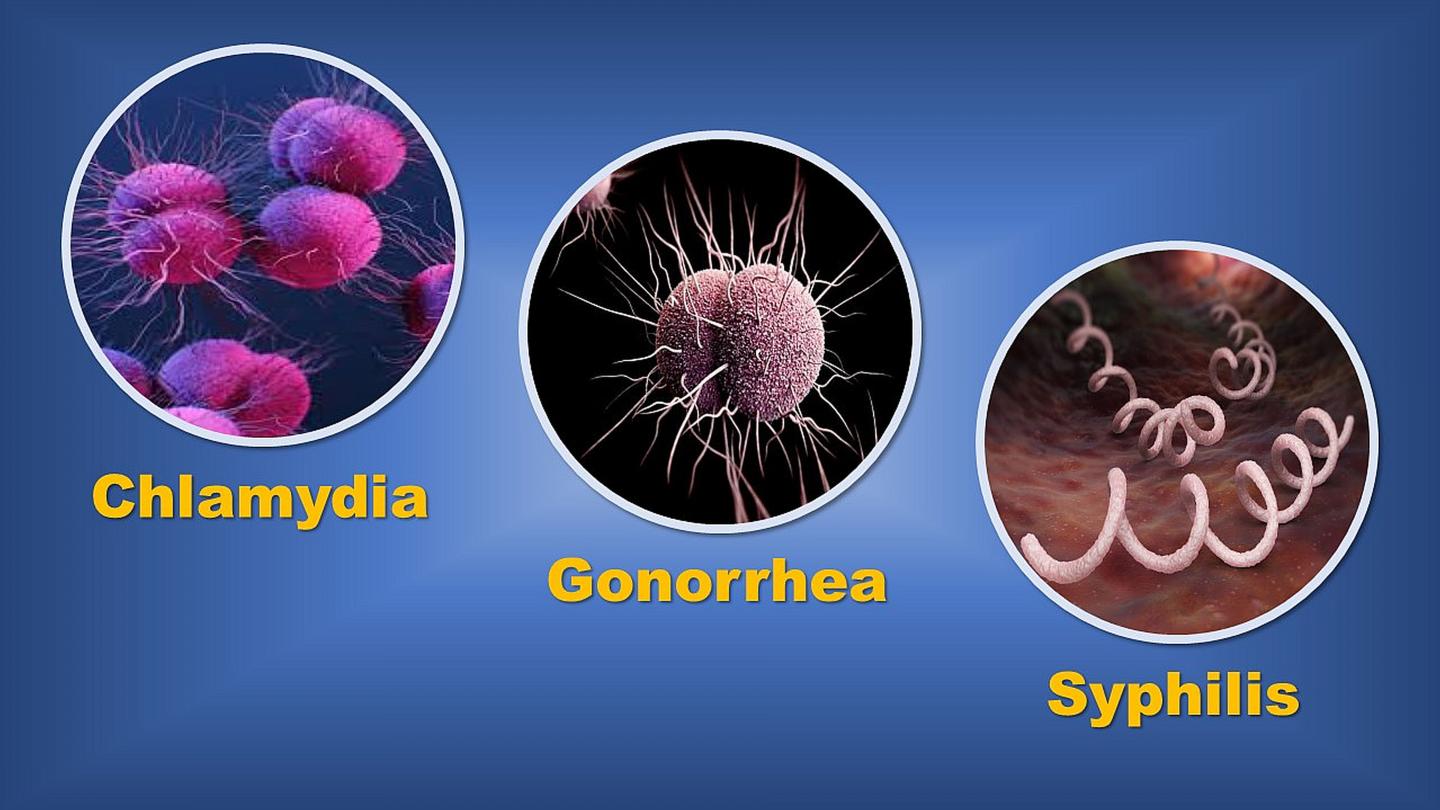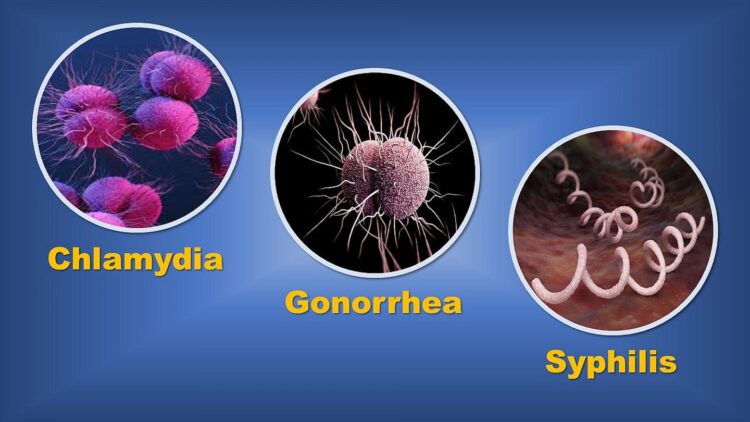
Credit: Graphic created by M.E. Newman, Johns Hopkins Medicine, using bacterial illustrations from the U.S. Centers for Disease Control and Prevention
With the health care community heavily focused on COVID-19 since the first quarter of 2020, there have been concerns that reporting of other diseases — and the resulting data that enables them to be more effectively treated and controlled — may have been impacted. For example, little is known about how the pandemic may have affected the reporting of sexually transmitted infections (STIs).
To address that issue, researchers at Johns Hopkins Medicine recently analyzed the number of reported cases of STIs within the United States during the first 40 weeks of 2020 and compared the counts with those recorded for the same period in 2019. And because the COVID-19 outbreak was first declared a U.S. national emergency on March 13, 2020 — near the end of week 11 — the researchers used that as the starting point for comparing reported STI cases in 2020 with the number of COVID-19 cases documented in weeks 12 through 40 of 2020.
Their findings were reported online Nov. 1, 2020, in the journal Sexually Transmitted Infections.
For their study, the researchers obtained numbers of cases for COVID-19 and three STIs — chlamydia, gonorrhea and syphilis — from the National Notifiable Diseases Surveillance System managed by the U.S. Centers for Disease Control and Prevention (CDC).
Comparing weekly incident case counts in 2020 from weeks 1 through 11 with weeks 12 through 40, the researchers found decreases for two of the STIs — 20.2% for chlamydia and 3.0% for gonorrhea — while there was a 5.5% rise in reports of syphilis cases. Comparing cumulative year-to-date case reporting data at week 40 in 2019 with the same time period in 2020, the researchers found decreases in chlamydia (18.2%) and syphilis (6.9%) but no significant change in gonorrhea numbers (a 0.06% decrease).
When compared with the number of cases reported each week for COVID-19 during weeks 12 through 40 of 2020, the weekly numbers for the three STIs appeared to inversely rise or fall for the most part with the coronavirus counts. In other words, periods of heavy COVID-19 case reporting seemed to coincide with fewer STIs being counted.
Additionally, the Johns Hopkins Medicine team showed that the reported case numbers for 42 of the 44 nationally notifiable diseases tracked by the CDC decreased from 2019 to 2020 for weeks 1 through 40. The researchers say that this possibly indicates the observed effect may impact infectious diseases other than STIs.
“It isn’t clear whether or not the decreases seen in reported cases of chlamydia, and to a lesser extent, gonorrhea and syphilis, were because COVID-mediated physical distancing was preventing transmission or, more likely, that there was a decrease in testing and reporting of cases, with fewer people seeking medical attention for STI symptoms during the pandemic,” says Matthew Crane, a medical student at the Johns Hopkins University School of Medicine and lead author of the study.
Based on their findings, the researchers believe there is a critical need for innovative strategies — such as patient-collected and mailed specimens — to counter any impacts in case reporting during a pandemic.
###
Crane is available for interviews.
Media Contact
Michael E. Newman
[email protected]
Original Source
https:/
Related Journal Article
http://dx.





